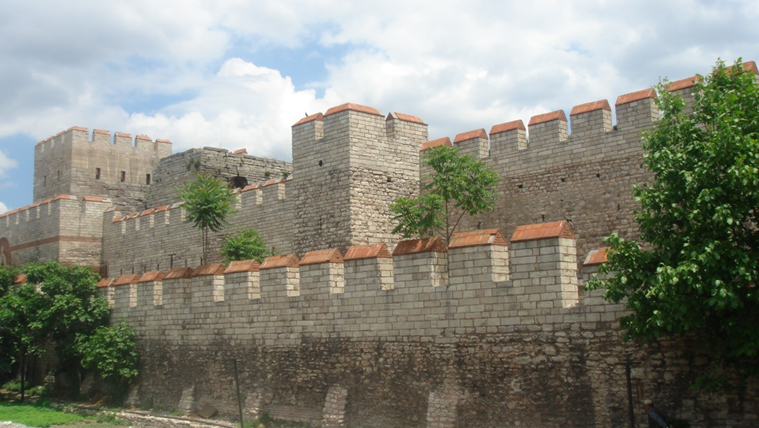A restored section of the Theodosian Walls of Constantinople
https://en.wikipedia.org/wiki/Siege_of_Constantinople_(717%E2%80%93718)
I have completed a draft of the first section of a new chapter about the Second Siege of Constantinople, a joint land and naval operation supervised by Maslama al-Malik, the caliph's brother and an adept general.
Emperor Leo Isaurian did not have a robust fleet to prevent the Arab navy from plying through the Turkish Straits as far as the walls of Constantinople. However, Byzantine engineers equipped their dromons with the Greek Fire, the secret weapon whose emotional impact rose over its destructive force. Its initial use pressured the Arab ship to take distance from the walls.
It is unfair to ascribe Byzantine success only to this powerful weapon. The Greeks demonstrated better tactics and managed to combine their limited means to wade off the aggressor.
It became clear that the key to the successful siege of the Imperial City was naval support, and the Greeks had to do their best to bar access to the Marmara Sea from the Dardanelles to foreign navies.
---------------------------
I made a new draft of the second section of Chapter I, titled "Sailing Ships in the Medieval Mediterranean."
Before uploading it on my Academia page, I want to offer it to history magazines or online editions. They usually demand exclusive publication.
https://independent.academia.edu/BaizermanMichael
The article delves into the world of the so-called round
ships, which primarily served as freighters, even when pressed into service as
part of the fleet.
I comment on sailing ships’ propulsion and behavior in flat
calms and storms. I speak about choosing
appropriate sailing styles and debunk the myth of the “closed sea.”
The article numbers about 3000 words, including endnotes.
-------------------------------
I collected data for the second section of a chapter about naval tactics: the Battle of Corfu (November 1084) between the Norman and Venetian fleets. Though I am sure about the Battle of Meloria (August 1284) and Malta (June 1283), I am still trying to decide on further chunks.

No comments:
Post a Comment